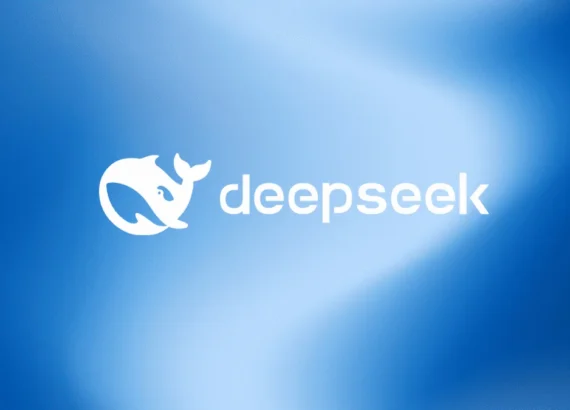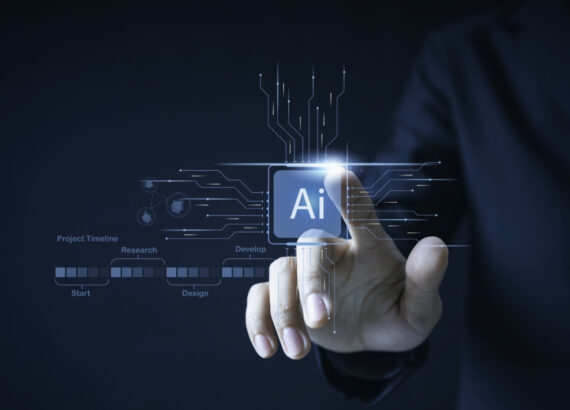7 Common Misconceptions About Artificial Intelligence
Artificial Intelligence (AI) has become a topic of immense interest and speculation in recent years. With its potential to transform various aspects of our lives, it is not surprising that there are several common misconceptions surrounding AI. In this article, we aim to debunk these misconceptions and shed light on the realities and potential of AI. By exploring the fundamental concepts, addressing fears, and highlighting the limitations and opportunities, we hope to provide a clearer understanding of what AI truly is and how it can impact our world. It’s time to separate fact from fiction and navigate the complex landscape of artificial intelligence.
1. Introduction to Artificial Intelligence (AI)
Defining Artificial Intelligence
These tasks include speech recognition, problem-solving, learning, and decision-making. AI is all about developing systems that can mimic human cognitive abilities and automate complex processes.
History and Evolution of AI
The concept of AI has been around for decades, but its development has gained significant momentum in recent years. The roots of AI can be traced back to the 1950s when computer scientists began exploring the possibility of creating machines that could simulate intelligent behavior. Since then, AI has evolved through various stages, from early rule-based systems to modern machine learning algorithms that can analyze vast amounts of data and make predictions.

2. AI is a Threat to Humanity
Understanding the Fear and Misconceptions
One common misconception about AI is the fear that it poses a existential threat to humanity. Popular culture often portrays AI as malevolent robots or superintelligent entities that will take over the world. However, this perception is largely exaggerated and unrealistic. While AI can have both positive and negative impacts, it is ultimately a tool that humans control and direct.
AI as a Tool, not a Master
It’s important to understand that AI is designed to assist humans, not to replace them. The purpose of AI is to augment our capabilities, improve efficiency, and enhance decision-making. AI systems are created and programmed by humans, and they operate within the boundaries set by their creators. We have the power to shape AI in a way that aligns with our goals and values, ensuring that it remains a valuable tool rather than a destructive force.
3. AI Will Replace Human Jobs Completely
AI’s Impact on the Job Market
Another common misconception about AI is that it will render human workers obsolete and lead to widespread unemployment. While AI does have the potential to automate certain tasks, it is unlikely to completely replace human jobs. Instead, AI is more likely to transform the nature of work by automating repetitive and mundane tasks, freeing up human workers to focus on more complex and creative endeavors.
Human-AI Collaboration and Augmentation
In reality, the most promising application of AI lies in collaboration with humans. AI systems can complement human skills and intelligence, making us more productive and efficient. By leveraging AI technologies, humans can automate routine tasks, leverage data-driven insights, and make more informed decisions. This collaboration between humans and AI creates a synergy that enhances overall productivity and opens up new possibilities.
4. AI Has Human-like Understanding and Consciousness
AI’s Current Limitations in Understanding
Contrary to what some may believe, AI does not possess human-like understanding or consciousness. AI systems are based on algorithms and trained models that operate on predefined rules and patterns. While AI may appear intelligent in specific domains, it lacks the broader understanding and contextual reasoning that humans possess. AI operates based on statistical patterns, whereas human intelligence encompasses a broader range of knowledge and experience.
The Difference between Artificial and Human Intelligence
It’s important to recognize that AI is not an attempt to replicate human intelligence but rather to mimic certain aspects of it. Human intelligence is complex and diverse, incorporating emotions, creativity, and empathy, which AI currently lacks. While AI excels in certain areas, such as data analysis and pattern recognition, it is limited to the tasks it has been trained on. AI and human intelligence are fundamentally different, each with their own strengths and limitations.

5. AI Is Infallible and Always Accurate
The Role of Data and Algorithms in AI Accuracy
Artificial Intelligence (AI) may seem like it possesses superhuman intelligence, but it’s important to understand that it is not infallible.
The accuracy of AI depends on the quality and quantity of the data it learns from. If the data is biased or incomplete, the AI system will reflect those biases and limitations. Additionally, the algorithms used in AI systems are designed by humans and can have flaws or limitations.
So, while AI can be incredibly powerful and accurate in specific tasks, it is not a foolproof solution for all problems. It requires careful consideration of data quality and algorithm design to ensure reliable and unbiased results.
The Potential for Bias and Errors in AI Systems
Another important aspect to consider is the potential for bias and errors in AI systems. AI learns from human-generated data, and if that data contains biases or inaccuracies, the AI system can perpetuate and amplify them.
For example, if historical hiring data contains biases against certain genders or races, an AI-based hiring system trained on that data may inadvertently discriminate against those groups. This highlights the importance of ethical considerations and careful monitoring of AI systems to ensure fairness and accountability.
It’s essential to recognize that AI, like any tool, is not perfect and can make mistakes. Understanding its limitations and potential for biases is crucial to using AI responsibly and ethically.
6. AI Can Solve All Problems Instantly
The Scope and Limitations of AI Applications
Contrary to popular belief, AI is not a magic wand that can instantly solve all problems. While AI has made significant advancements in various areas, its applications are still limited and context-specific.
AI excels in tasks such as image recognition, natural language processing, and data analysis. However, it struggles with tasks that require common sense reasoning, creativity, or complex social interactions, which are natural for humans.
So, while AI can automate repetitive tasks and provide valuable insights, it cannot completely replace human intelligence or expertise in areas that require complex judgment and decision-making.
AI systems also require human oversight and critical thinking to ensure their effectiveness and ethical use. AI algorithms are designed by humans and can have biases or blind spots. Without human involvement, AI systems may produce inaccurate or biased results.
Human expertise is crucial in interpreting and contextualizing AI-generated information. Critical thinking is necessary to question and validate the outputs of AI systems, especially when the stakes are high or when biases could be present.
In summary, while AI has tremendous potential, it is not a one-stop solution to all problems. Human intelligence, judgment, and critical thinking are still indispensable when working alongside AI systems.

7. AI Is Only for Tech Giants and Large Enterprises
The Accessibility and Adoption of AI Across Industries
Contrary to popular belief, AI is not exclusive to tech giants and large enterprises. The accessibility and adoption of AI have expanded across various industries in recent years.
Thanks to advancements in technology, AI tools and platforms are becoming more accessible and affordable. Small and medium-sized businesses (SMBs) can now leverage AI to automate tasks, improve efficiency, and gain valuable insights from data.
Industries such as healthcare, finance, manufacturing, and agriculture are utilizing AI to enhance their operations and decision-making processes. From diagnosing diseases and predicting market trends to optimizing supply chains and improving crop yields, AI is transforming businesses across the spectrum.
AI’s Potential for Small Businesses and Individuals
AI is not just for big businesses; it holds tremendous potential for individuals and small businesses as well. AI-powered personal assistants, voice recognition, and recommendation systems have become everyday tools that enhance our lives and productivity.
Small businesses can benefit from AI-powered chatbots for customer service, predictive analytics for demand forecasting, and personalized marketing campaigns. Individuals can use AI-powered apps for fitness tracking, language learning, or even virtual personal trainers.
The democratization of AI is opening up new opportunities for innovation, creativity, and entrepreneurship, regardless of the size of the organization or individual. It’s an exciting time to explore and embrace AI’s potential.

8. The Realities and Potential of Artificial Intelligence
Artificial Intelligence is a powerful tool that continues to evolve and shape our world. However, it’s essential to separate misconceptions from realities when it comes to AI.
AI is not infallible or always accurate; it requires careful data selection and algorithm design to ensure accuracy and avoid biases. Likewise, AI is not a universal problem solver; its applications are limited to specific tasks and still require human oversight and critical thinking.
Contrary to popular belief, AI is accessible and beneficial to various industries, including small businesses and individuals. The democratization of AI is driving innovation and offering new opportunities for growth and efficiency.
Understanding the realities and potential of AI allows us to harness its power responsibly, ethically, and with a touch of human wit and ingenuity. So, embrace the possibilities, but always keep a keen eye on the limitations and implications. Artificial intelligence may be smart, but we humans can be smart and witty too!
Conclusion
In conclusion, debunking these common misconceptions about Artificial Intelligence is crucial in fostering a better understanding of its true nature and capabilities. AI is not a threat to humanity, nor will it replace human jobs entirely. It is not endowed with human-like understanding or consciousness, and it is certainly not infallible. While AI presents immense potential, it is not a magic solution that can instantly solve all problems. Moreover, AI is not limited to tech giants and large enterprises; it is accessible and applicable across industries. By embracing AI as a powerful tool rather than a dystopian force, we can harness its potential to drive innovation, augment human capabilities, and address complex challenges. It is essential to approach AI with a sense of responsibility, ethics, and human oversight. Only by dispelling misconceptions can we fully explore and leverage the vast possibilities that Artificial Intelligence offers in shaping our future.
FAQ
1. Can AI pose a threat to humanity?
While there are concerns about the potential dangers of AI, it is important to note that AI itself is not inherently malevolent or capable of intentional harm. AI systems are created and controlled by humans, and their behavior is determined by the algorithms and data they are trained on. Responsible development and regulation of AI can minimize risks and ensure that it benefits humanity rather than poses a threat.
2. Will AI replace all human jobs?
AI has the potential to automate certain tasks and roles, but it is unlikely to replace all human jobs completely. Instead, it is more likely to augment human capabilities and lead to the creation of new job opportunities. While some job roles may evolve or be replaced by AI, there will always be a need for human skills such as creativity, emotional intelligence, and critical thinking that AI cannot replicate.
3. Can AI truly understand and have consciousness like humans?
No, AI does not possess human-like understanding or consciousness. Current AI systems are based on algorithms and statistical models that process vast amounts of data to make predictions or perform tasks. While AI can mimic certain aspects of human intelligence, such as pattern recognition, it lacks true comprehension, awareness, and subjective experience that are inherent to human consciousness.
4. Is AI always accurate and infallible?
AI systems are not infallible and can make errors or exhibit biases, depending on the quality of the data they are trained on and the algorithms used. Additionally, AI models may struggle with novel or ambiguous situations. Ongoing efforts in improving data quality, refining algorithms, and implementing ethical guidelines aim to address these challenges and improve the accuracy and reliability of AI systems.
If you want to build your website in an affordable price contact: www.nextr.in
Read this: Unveiling The 7 Skill To Master In 2023


















